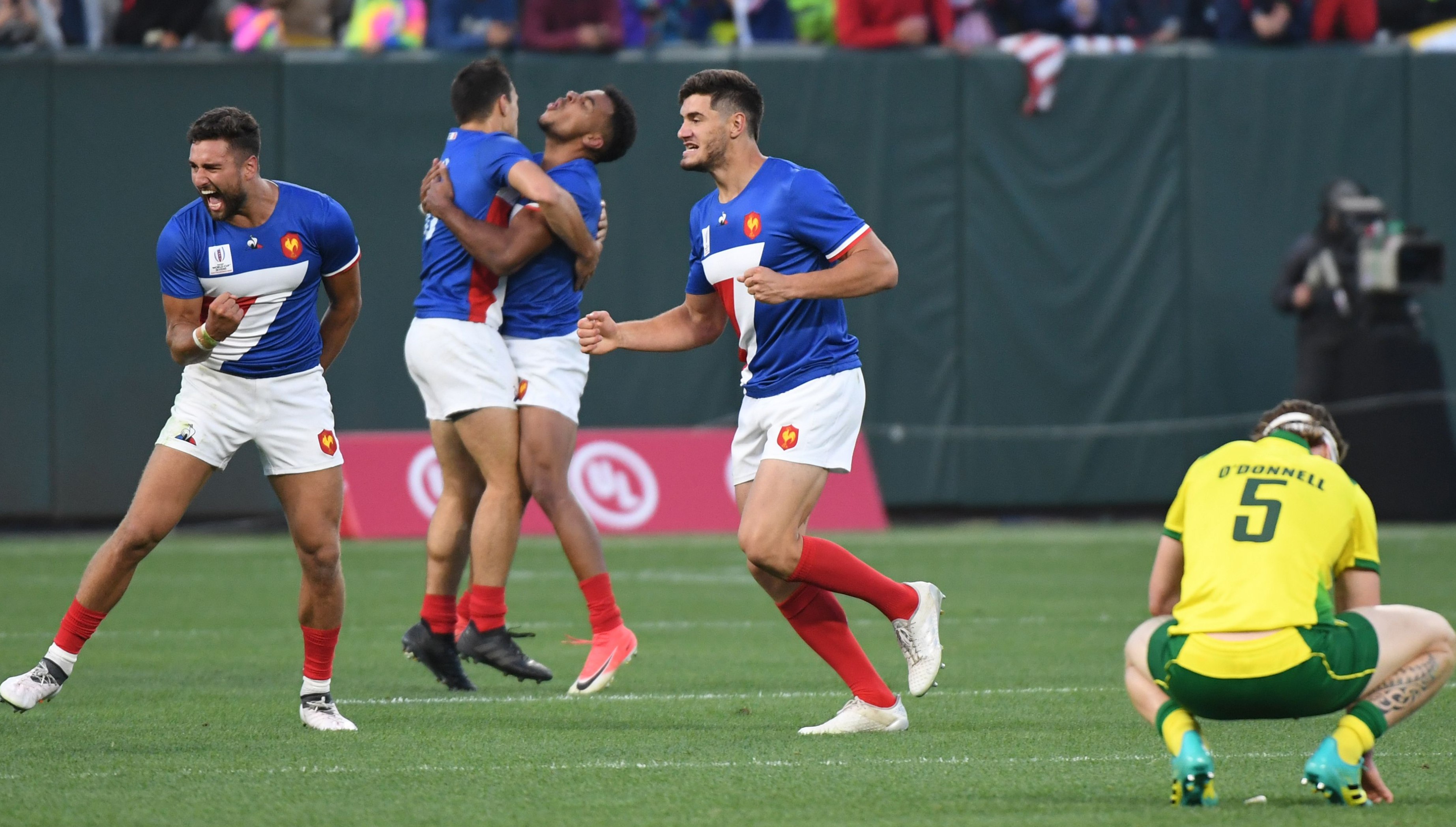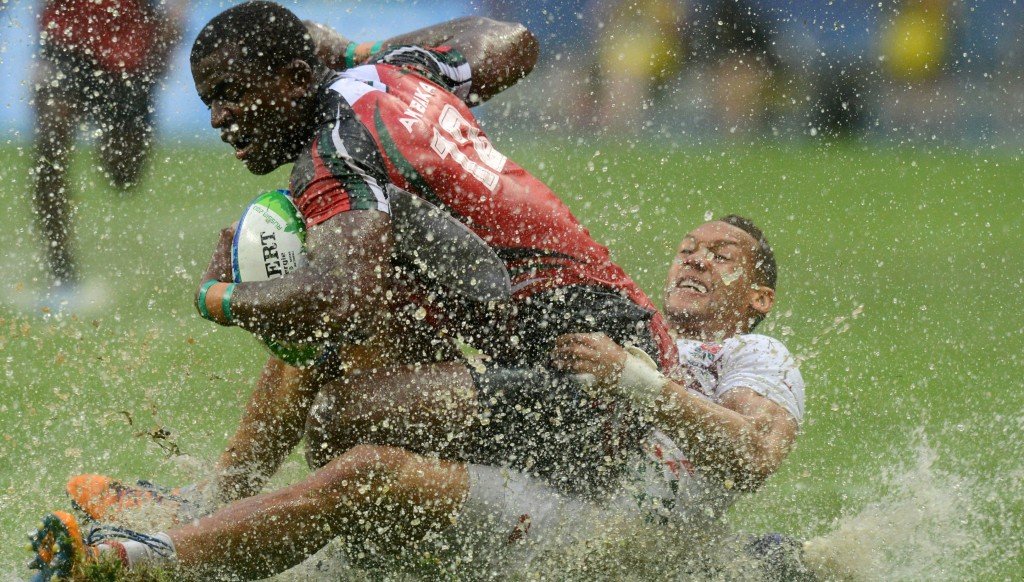
First the bouquets.
World Rugby has done a tremendous amount right in bringing the Rugby World Cup Sevens to the highly picturesque AT&T Stadium in San Francisco, home of MLB’s Giants.
Just one day in, the tournament could already be judged a success.
The last RWC Sevens however was far less so.
Played in a deserted Luzhniki Stadium in Moscow (yes – the same one that just hosted the Football World Cup final) in the middle of a heatwave back in 2013 it was memorable only for a torrential downpour on the final day, similar to the deluge during France’s trophy presentation.
So empty was the Luzhniki during the tournament that crowd numbers barely reached 500 – in total – over the three days and so morgue-like the atmosphere that it was possible to call across to someone on the other side of the stadium and ask them to bring you a snack, if they could find a food outlet that was actually open.

RWC Sevens 2013: A mud bath in an empty stadium.
Due to the strict beverage laws in place during that RWC Sevens many fans who travelled to the Russian capital actually chose to stay at their hotel and watch the games on TV rather than travel to the ground – only adding further to the odd atmosphere.
Such a non-event was 2013 it was no surprise that World Rugby spoke of dis-continuing the RWC Sevens after the sport took its place in the OIympic Sevens in Rio three years later.
But thankfully – and we may confidently say that – they decided to continue the event in what is now a busy Sevens calendar fitting in the World Series, RWC Sevens, Commonwealth Games and Olympics.
They were not short of choices for RWC 2018 with no less than 14 nations bidding to host the blue-ribbon event – England, Fiji, France, Hong Kong, Netherlands, New Zealand, Portugal, Scotland, Singapore, South Africa, Spain, United Arab Emirates and the US.
Boldly World Rugby decided to use the RWC Sevens to try and break into the great rugby sleeping giant, the US, and awarded the tournament to San Francisco.
A lot of the decisions that have been made around that hosting decision have been aimed at making the event look as attractive as possible to the national TV audience captured by host broadcaster – NBC.
Sevens with its end to end action, endless tries, exceptional skill levels and extraordinary athletes is the perfect product to win over an already saturated US sporting market.
And in players like Perry Baker, Leone Nakarawa and Portia Woodman the Sevens has the talent to tempt any sports lover to tune in – and stay for awhile.
But if World Rugby have done a lot right they have made one glaring error.
Now the brick bats.
In order to make the tournament even more tempting to that US TV audience they decided to institute a total knockout format – where one mistake would rule teams out of being in contention for the Melrose Cup.
Perry Baker #RWC7s pic.twitter.com/jjVRhfY3uS
— Klein (@bamweKle) July 21, 2018
This is unusual in Sevens as the accepted best format is the Group system, as used at the FIFA World Cup, where teams are grouped together in pools of four who play each other on a round robin basis.
After these matches are completed the top two teams in each Group then go forward to compete for the Cup while the bottom two teams in each group move into a consolation bracket.
If it ain’t broke, don’t fix it – the saying goes – and in introducing the “innovative” new format World Rugby has provoked unnecessary controversy and imbalance.
The greatest example of this is the Australian Men’s side who as a seeded team did not play in the opening pre-round of 16 matches.
They were set down to meet the winner of France and Jamaica, a match that Les Bleus won not surprisingly in a canter 50—0.
France, warmed up, acclimatized to the stadium and with momentum on their side then dispatched the stone cold Aussies 22-17.
I don’t know any other sporting contest around the world that would bring a team half way around the world and then give them just 14 minutes to perfect their performance.
You won’t hear any excuses from @Aussie7s men’s team. We as a collective were not good enough and we are accountable for our performance and the result. We knew the format and prepared accordingly. Appreciate the compliment and support but the team and I need to be better.
— Tim Walsh (@timwalsh7s) July 21, 2018
All credit to the Australian coach Tim Walsh who refused to use the format as an excuse, saying on Twitter: “We as a collective were not good enough and we our accountable for our performance and our result.”
“We knew the format and prepared accordingly.”
It is exceedingly magnanimous by the well-credentialed Walsh but there were few Australian supporters who agreed with his sentiment.
Of course all this will be forgotten now as the RWC Sevens moves into the deciding stages but the change of format has been the only blight on what has been an overall shining success.
Let’s hope the knockout format returns to the oblivion from whence it was dragged never to darken a Sevens tournament again.